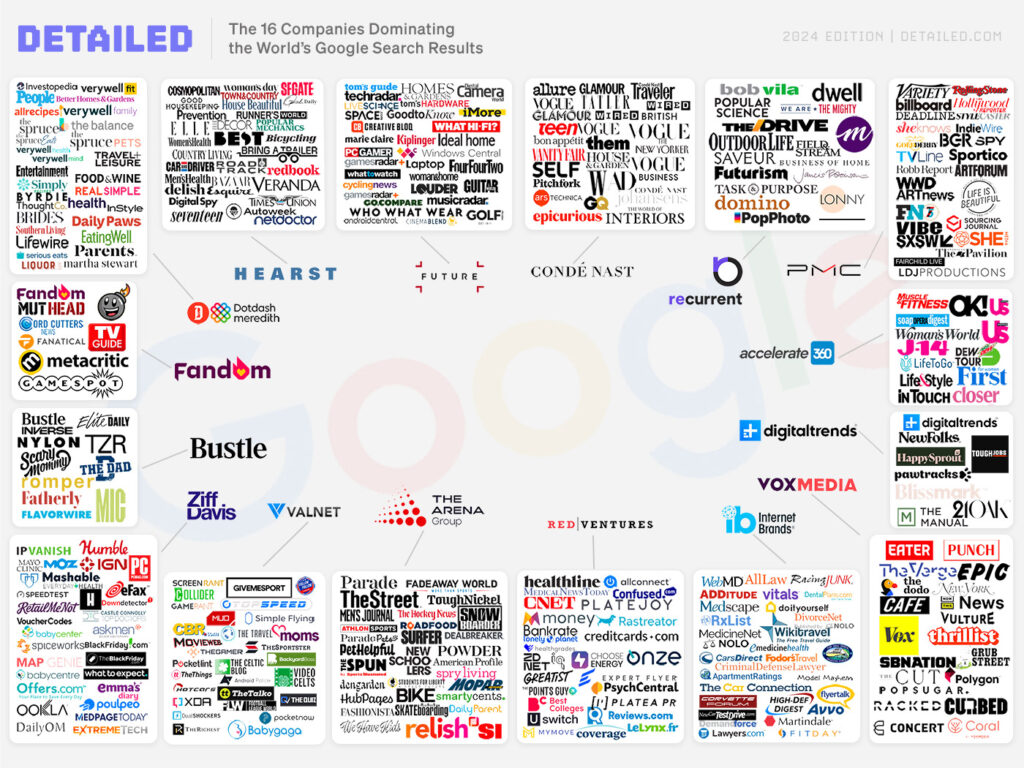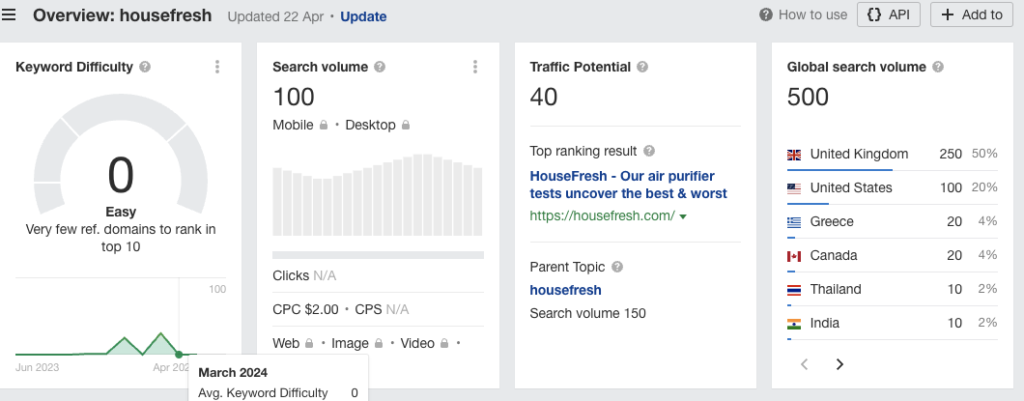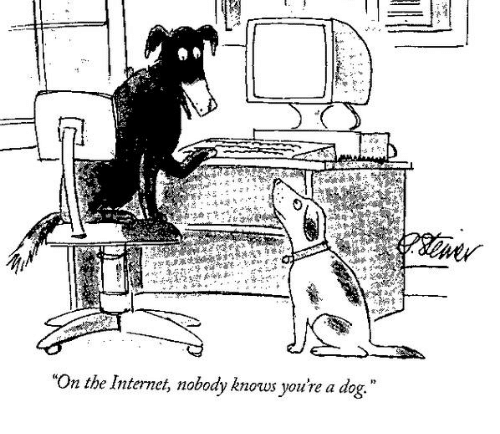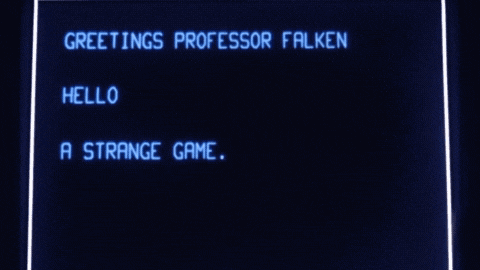No, indeed, it really is.
I didn’t create this headline to be sensationalistic or clickbait. Rather, there is a seismic shift in Google organic search results and, from this, long-term changes in user behavior.
I’ve been spending a few weeks trying to process the latest Google updates and what all of this means. What it means for me, my business and for others in the affiliate marketing and niche website business.
This isn’t new but been brewing for a few years now and Google’s March 2024 update is the final nail in the coffin.
I’ve done very well with Google, so much so I was able to sell my affiliate marketing blog in 2018. Though, if I’m honest, I’ve always had a love-hate relationship with them. What Google has giveth, it can taketh away. And take away it has!
Mind you, not all types of SEO are done with. SEO for eCommerce products, SaaS and local websites is still very much alive and well.
SEO for an informational niche website is deader than dead!
I believe the opportunity I once had is no longer possible in today’s marketplace. You cannot create a blog on a specific niche topic, write articles on that topic and then expect Google to rank your articles.
It’s just not going to happen today.
Google is clearly punishing small to medium sized information-based publishers. The data shows Google does not like affiliate or ad-based content. Google wants to display results for websites who directly sell a product. Google is effectively removing the middleman – you!
Now mind you it’s not all niche websites. The larger brands with a DR score of 80 or higher have pretty much gotten a pass. They are considered trusted brands by Google. You as a small-time publisher could never do what a Forbes, NerdWallet, or CNET does with its content.
There are countless examples of “reviews” by many of these companies where clearly the author has little experience in said product, or has not even used the product for that matter. The big brands don’t follow many of the recommended review guidelines by Google.
Does this create a good experience like Google says you should create? Clearly no!
Yet Google expects smaller niche sites to follow these guidelines.
Google Search Is Broken
Be it from incompetence or mal-intent it doesn’t matter. What matters are the search results have dramatically changed, and at least in my opinion, not for the better.
Google recently reported record profits and, as I write this, their stock is at an all-time high. This is not unexpected. After all, if the organic search results are decreasing in quality, one will click ads to get the results you are looking for.
They in fact even stated this in their internal email documents.
While I have no issue with Google trying to maximize shareholder value, what I do have an issue with is penalizing you as a content creator for wanting the same. Niche sites that don’t offer a product and monetize via affiliate links or ads are effectively flagged as “not helpful” content.
Google wants you to be altruistic with your content while they profit from the very content you create.
What’s that you don’t work for free? In effect Google expects you to review products and give recommendations without being “corrupted” by the profit motive.
Are some affiliate marketers giving recommendations purely on which service will make them the most money? Sure! That existed way before Google was a twinkle in Larry Page and Sergey Brin’s eyes and will exist long after Google is gone.
I’m not naive to think otherwise, though the point is Google is just as greedy as everyone else. Otherwise why did Google change the layout of their ad banners to closely match organic search results?
To think anyone is altruistic is naive at best. Otherwise, how can we review products that Google wants us to purchase, experience, and take user-generated photos? I don’t know about you, but I’m certainly not willing to work for free. The value added by a content creator is rewarded in the affiliate conversions or ads clicked.
Unfortunately, the profit motive has been removed by Google with the exception of a handful of large content players. If the profit motive is removed for most content creators, that means less content will be created and makes search results that less effective for the end user.
The Search Results Are Awful
Objectively, the search results are some of the worst results I’ve seen in the 15 years I’ve been a SEOer and 24+ years I’ve used Google.
Google SERP today is littered with junk results from Reddit, Quora, LinkedIn, Medium and alike. Google has deemed User Generated Content (UGC) sources to be more legit than a blogger who monetize via ads or affiliate links.
Why should I trust what RedBunny1549 on Reddit has to say??
Obviously for simple topics, maybe, but the YMYL topics, why should I trust what some anonymous poser living in their mom’s basement says about testosterone replacement therapy?
At least when a well-created blog writes an article Google originally wanted you to be transparent with your qualifications. I can read other articles they’ve written about, I can make my own judgement on if the author falls under Google EEAT guidelines and is it an author I can trust.
Obviously a good brand is a trusted shortcut. But with User Generated Content, Google is relying on the overall trust of the brand and trusts each author equally under that brand umbrella. That’s a big ask and is the results we see today.
Not that $60 million and an IPO would have anything to do with Google pushing Reddit to the top of the search results? Altruism for thee but not for me.
If it’s not User Generated Content Google is showing, it’s display results from primarily 16 brands as Glen Allsopp has shown.

The fact of the matter there’s just too much content out there on every topic and Google can’t correctly parse good content from bad. So instead is relying on big brands to deliver good content.
Be it from the shear volume of content created by people to content created via AI bots. Content is a commodity in the truest sense of the term. It’s an arms race to the bottom. The moat for content creation, now especially with AI, is effectively zero.
With a few hours of keyword research, ChatGPT and WordPress you can create an article on pretty much any topic.
Credit of your content is only going to get worse with AI coming down the pipeline.
Google has been scrapping and training it’s AI model on your content for years. All of which you have generously given them for free. With AI results they can show a collective answer from the million other sites they’ve collected data from as well without sourcing one specific website. Basic informational queries will be all answered by Google directly, and yield ever more zero click search results.
Does EEAT Even Matter?
Google has been pushing for years their EEAT (Experience, Expertise, Authoritativeness, and Trust) are important factors when trying to rank an article.
How is an an anonymous individual at Reddit proven to be any of the EEAT moniker? Just because a Reddit post has been upvoted does not mean that individual is giving out good advice.
I’ve seen countless examples of search results with Reddit results that are outdated, contain parasitic SEO, or outright wrong information.
It’s evident that EEAT is no longer an important factor in Google search results; what matters are backlinks and overall domain (read brand) authority.
All one has to do is search “best printer,” see Verge’s AI-generated nonsensical content, and realize that none of the advice Google spews through its Search Liaison matters.
It’s all about backlinks and authority. Quality content be damed!
Constant Updates
In 2022, Google made 10 major updates, and in 2023, It made 9 major updates. This doesn’t include the many weekly minor tweaks to its algorithm. As mentioned, some of these have literally decimated businesses overnight with no fault of their own.
They are reporting these updates as improvements, but as a creator of content, do you really want to be one update away from Google destroying your business? Especially if boxed into a corner with no known way to recover.
There Are No Recoveries from HCU
Google’s first Helpful Content Update (HCU for short) was in August 2022. Then Google released another one in September 2023 with the latest one in March 2024. For many informational websites, September 2023 is when most started with their pain.
As I write this, on May 2, 2024, there are no documented recoveries from HCU.
None. Zero. Zilch!
It’s been a slow death march to less and less traffic from Google. Bloggers who got hit from the September 2023 update got even more bitchslapped in March 2024.
If you can’t recover from HCU, why spend time and effort with Google SEO? It’s an effort in futility.
This is perhaps the most damning reason why SEO is dead.
Until there’s a clear path to recovery with Google, you are wasting time that should be spent on other business efforts.
What Can You Do?
If SEO is dead, what must a niche content creator do?
Unfortunately, with some niches, it might not be much.
Historically, organic search traffic has typically been 45-88% of all website traffic. Organic search historically converts much better than other sources.
HouseFresh, for example, their visitors are what I typically call “one-and-done” type of people. Visitors do not typically subscribe to a weekly newsletter to get the latest tips on air purification. It’s not a topic that the average person will keep consuming content. They visit Google and type in “best air purifier” or some variant, find a product that meets their needs, and buy it.
Except for some ancillary accessories, I doubt they will ever visit HouseFresh again.
Unfortunately, with Google’s HCU, this is the very type of traffic pattern that Google is punishing and has deemed “not helpful.”
Minus the recent exposé HouseFresh published about Google’s issues, brand-related queries for HouseFresh are few and far between.

Organic search works well because people use a search engine to solve problems. Branded keyword terms might be part of it, but in many cases, they are not.
For other mediums, like social media, you aren’t going there to solve a problem but to be entertained. However, user behavior is starting to change with younger demographics. People are starting to go to other sources than search engines for their advice.
If you are in this situation, you are better off pretending that Google no longer exists (if they haven’t already 100% decimated your traffic) than trying to fix what is currently unfixable.
The fact of the matter is that traffic may never come back.
Could Google reverse some of the changes it made? Sure!
Could Google document a clear path to recover from HCU? Definitely.
This could be weeks or months away. If ever.
As your site revenue takes a nosedive, you still have writers, designers, engineers, and technology services to pay. Those expenses add up quickly.
As I write this, only four weeks out from the March 2024 update, I’m already seeing many content creators calling “uncle” and giving up.
Google has always had a symbiotic relationship with content creators. Google does not exist without content; in return, authors/websites can be found in search results. However, as Google punishes small and medium-sized content creators, how long will this last?
If nothing changes in the next 3-6 months, I predict that most content creator blogs will give up and close their businesses.
Ironically, the web will become a much smaller place, and the free and open marketplace will become even smaller and more homogenized than ever.
However, not all hope is lost for other types of niche blogs.
Other sources of traffic that can convert with ads or affiliate marketing are still possible. It should go without saying that you should create content on social media and YouTube and grow your mailing list.
Ultimately, you are not relying on one source of traffic.
Paid Traffic
The often missed traffic source is paid traffic or PPC. While PPC is a much different animal than SEO, the many bloggers I’ve spoken with never considered using paid traffic. If they do, they cannot track and report conversions correctly back to the ad networks.
Yes, it’s great that you’ve increased conversions, but was it from organic search or from the paid ad you just ran? Many affiliate marketers who run paid traffic have no idea if their ads are ROI-positive.
I created the affiliate tracking software LinkClicky to track clicks and conversions for organic search traffic and, more importantly, paid traffic.
My clients who have paid traffic have found it their saving grace as their organic traffic disappears.
Paid traffic isn’t going away anytime soon.
While Google may want you to work for free, they certainly do not expect the same. Therefore, ads (rather than subscriptions) will always be a way to gain mass acceptance of a product like Google or Facebook. I expect AI tools to be no different.
AI requires high computational costs, and subsidies will be needed to cover those costs for mass adoption. That means ads will eventually exist on services like OpenAI.
When ads become available on AI platforms, it’s best to jump on that bandwagon immediately and become an expert.
Ads on AI platforms will offer a massive opportunity for content creators.
Build A Brand
I’ve been stating this for years: You need to create a brand for your business, not build a website that relies on search keywords to be found.
Ultimately, Google wants you to build a brand and reward sites that do.
Of course, this isn’t something you can create overnight and can take years (sometimes even decades). This puts a significant damper on the niche site creators who sell the dream of creating a blog in a few months and profiting. That was true once, but it no longer applies today.
With that brand, you are best to create products (they can be informational or physical) and use these as the primary methods to monetize your brand. Effectively, Google wants to rank these types of websites. This means affiliate links and ads are secondary, if at all.
Building a brand also means building tighter relationships with your audience, making it more reliable than SEO.
Is SEO Worth It?
The bigger question is, is SEO really worth it anymore? Is it worth all the effort, time, money, and especially risk to focus on generating organic search traffic? Except for very long-tailed keywords and things like programmatic SEO, I will have to say no.
While I was a huge proponent of SEO previously, it’s becoming clear that it’s a fool’s errand unless it becomes more stable, which, if anything, will get worse as AI becomes more prominent.
The economics doesn’t make sense in many cases.
I will quote the 1983 movie WarGames, which got me interested in computers and AI.
“The only winning move is not to play.”
Let me be clear. Google doesn’t owe me (or you) anything. I’m not recommending getting the government involved to regulate search. If Google doesn’t serve its customers, it will cease to exist.
Many fellow bloggers aren’t old enough to remember search engines like Excite!, HotBot, and AltaVista, but I do. They all disappeared within a few years after Google came to market because they were superior. OpenAI could just as quickly decimate Google.
Personally, I will use Bing, YouTube, and OpenAI to find solutions to my problems. Perhaps others will do the same, but those will also be the focus of my next ventures.
Google’s organic search is dead to me, but I wish it well.


